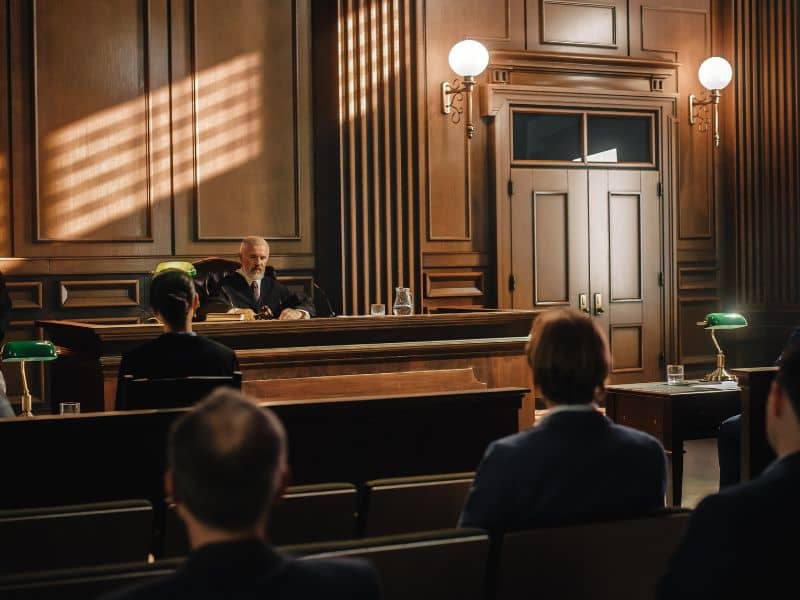What Happens at an Arraignment Hearing for a Felony in Colorado?

If you’ve been charged with a felony in Colorado, you’re likely feeling overwhelmed and uncertain about what comes next. One of the first major steps in your case will be the arraignment hearing. At Dawson Law Office, we’ve guided countless clients through this crucial phase, and we’re here to demystify the process for you.
The Purpose of a Felony Arraignment
A felony arraignment is your first formal court appearance after being charged with a serious crime. It’s not a trial but rather a procedural hearing that sets the stage for everything that follows. The main purposes are threefold:
- To formally present the charges against you
- To ensure you understand your constitutional rights
- To get the ball rolling on further proceedings
Think of it as the official kickoff to your case. It’s where the rubber meets the road in the legal process, and it’s crucial to approach it with a clear understanding of what’s at stake.
Key Players in Your Felony Arraignment
When you step into that courtroom, you’ll encounter several important figures:
The Judge: Your Courtroom Conductor
The judge presides over the hearing, ensuring everything follows proper legal procedure. They’ll be the one asking you questions and making decisions about bail or release conditions.
The Prosecutor: The State’s Representative
Representing the State of Colorado, the prosecutor will present the charges against you. They’re not your enemy, but they are advocating for the state’s interests.
Your Defense Attorney: Your Legal Ally
This is where we come in. Your defense attorney (whether it’s us at Dawson Law Office or a court-appointed public defender) is there to protect your rights and interests. We’ll be right by your side, explaining things as they happen and advising you on how to respond.
The Arraignment Process: A Step-by-Step Breakdown
Now, let’s walk through what actually happens during the hearing:
- Calling the Case: The court clerk will announce your case, bringing it officially before the judge.
- Reading of Charges: The judge or prosecutor will read out the formal charges against you. This isn’t the time to argue your case – that comes later.
- Advisement of Rights: The judge will inform you of your constitutional rights. This includes your right to an attorney, your right to remain silent, and your right to a jury trial.
- Entering a Plea: You’ll be asked how you plead to the charges. We’ll discuss your options in more detail shortly.
- Bail Considerations: The judge will decide whether to set bail, release you on your own recognizance, or hold you in custody until trial.
This process might seem quick – most arraignments only last a few minutes – but each step is critically important.
Your Plea Options: A Crucial Decision
When it comes time to enter your plea, you have three main options:
1. Not Guilty
This is the most common plea at arraignment. It doesn’t mean you’re claiming innocence, but rather that you’re exercising your right to have the state prove its case against you beyond a reasonable doubt.
2. Guilty
Pleading guilty means you’re admitting to the charges. It’s rare to plead guilty at arraignment without a plea deal in place, and we generally advise against it without thorough case review and negotiation.
3. No Contest (Nolo Contendere)
This plea means you’re not contesting the charges, but you’re not admitting guilt either. It’s treated similarly to a guilty plea in criminal court but can have different implications in civil matters.
Understanding Your Rights: Knowledge is Power
During the arraignment, the judge will explain several key rights. These include:
- The right to legal counsel
- The right to a speedy trial (which in Colorado means within six months of your plea, per C.R.S. 18-1-405)
- The right to confront witnesses against you
- The privilege against self-incrimination
These rights form the bedrock of your defense, and understanding them is crucial to navigating your case effectively.
Bail and Release: What to Expect
The judge will also make a decision about your custody status. They might:
- Release you on your own recognizance (a written promise to appear at future court dates)
- Set a bail amount you must pay to be released
- Hold you in custody if you’re deemed a flight risk or danger to the community
Factors influencing this decision include the severity of the charges, your criminal history, and your ties to the community. If bail is set, the judge may also impose conditions on your release, such as travel restrictions or drug testing.
What Comes After the Arraignment?
Once the arraignment is over, your case moves forward. The next steps might include:
- Scheduling future court dates
- A preliminary hearing (for felonies, this must occur within 35 days of the arraignment if you’re in custody or 63 days if you’re not, per Colorado Rule of Criminal Procedure 5)
- Plea negotiations with the prosecutor
- Preparing for trial
Each case is unique, and the path forward will depend on the specific circumstances of your situation.
Facing Felony Charges? Why Legal Representation is Your Strongest Asset
While you have the right to represent yourself, we strongly advise against it, especially in felony cases. The criminal justice system is complex, and the stakes are high. Having a knowledgeable attorney by your side can make a world of difference.
At Dawson Law Office, we bring years of experience in Colorado criminal defense to the table. We’re not just there to stand next to you in court – we’re there to guide you through every step of the process, explain your options, and fight for the best possible outcome in your case.
Don’t face this challenging time alone. If you or a loved one are facing felony charges in Colorado, reach out to Dawson Law Office today. We’ll review your case, explain your options, and stand by your side from arraignment through to the resolution of your case. Your future is too important to leave to chance – let us help you navigate this complex process and work towards the best possible outcome.



